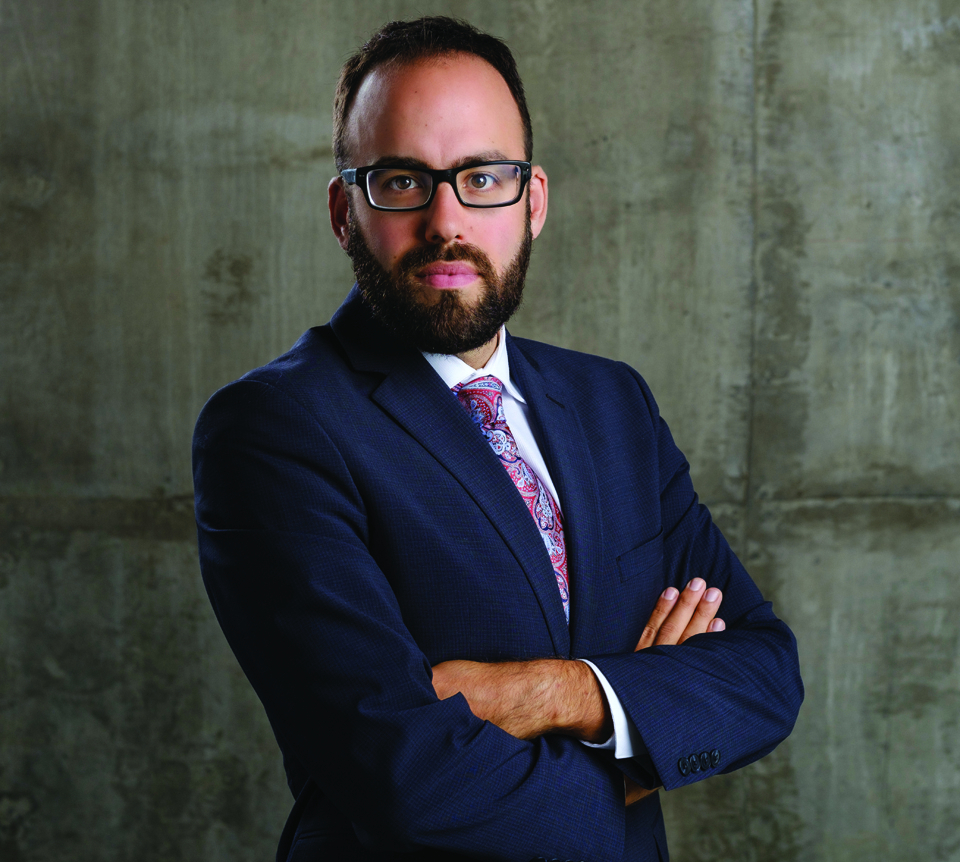Last February, the adult industry trade group Free Speech Coalition (FSC) released a policy position paper that clearly stressed, from the get-go, a sentiment shared by virtually every single professional in the sector.
The FSC, the text unequivocally proclaimed, “whole-heartedly supports the goal of protecting young people from material that is age-inappropriate or harmful.”
The title of the position paper, however, made equally explicit the difficult situation webmasters, content creators, platforms and the rest of the adult industry face in 2023, amid an onslaught of religiously and politically motivated attacks resulting in poorly worded, sanctimonious legislative efforts.
The FSC paper is titled “Ineffective, Unconstitutional, and Dangerous: The Problem with Age Verification Mandates.”
Pressured by outside forces — some operating at the national and state level in the U.S., others internationally, including continental and global organizations — the adult industry once again finds itself between a rock and a hard place. The rock is a very real conundrum: how to keep minors from accessing adult content. The hard place is, as the FSC said, ineffective, unconstitutional and dangerous legislation drafted by questionable special interest groups without meaningful consultation with the adult sector.
As with previous wars on porn, legitimate, legal businesses, eager to comply with laws that could help address important issues of moderation, are forced into costly lobbying campaigns and endless debates over a slew of age verification measures that have been worded with the not-so-secret goal of putting them out of business.
The age verification measures in question — from Utah’s SB 287 to France’s 2020 law passed surreptitiously as an amendment to unrelated domestic abuse legislation — all share two things in common: a determined push by powerful anti-porn interests, and the sponsors’ reluctance or refusal to engage in meaningful consultation with the companies, creators and performers most affected by the measures.
As members of the adult community, at all levels, face the reality of the attacks against the sector, more and more have become card-carrying FSC members — and FSC’s Director of Communication Mike Stabile has become one of the most vocal and eloquent voices in the press and social media, educating the community and shaping public opinion about the possible impact of these measures. Stabile told XBIZ that the trade group is looking at age verification in three different ways.
“First, we’re obviously looking at the laws around age verification in the U.S. and globally, and looking at their constitutionality, and in fact challenging the constitutionality in some cases,” he says in a mid-May phone conversation from Washington, where an FSC delegation had traveled to meet with members of the U.S. Congress and their staffs to discuss banking discrimination against adult businesses and sex workers.
“Second, we are looking at ways in which our members — should they want to, or should they need to — can comply with the laws,” Stabile adds. “A lot of people in our industry are parents and have families. I don’t think anybody in our industry wants kids on their sites.”
“And third, we’re looking at talking with the age verification companies themselves, and doing research to try to understand how the solutions they currently offer comply with the actual laws, should they get passed,” Stabile explains.
In short, FSC and its growing membership have real concerns about age verification and the laws that are being passed, but are also being pragmatic about figuring out appropriate ways to comply, since the organization and the industry share the laws’ stated intention to keep minors off adult sites.
“But we have to be careful,” Stabile adds, “because some of the solutions that are offered and some of the things that are actually available may not match some of the things these new laws are prescribing.”
The Patchwork Problem
Besides those general concerns, adult businesses that seek to comply also commonly face another situation inherent in state-level anti-porn campaigns: inconsistency.
Religiously inspired moral crusaders such as the National Center on Sexual Exploitation (NCOSE) — the leading anti-porn lobby in the U.S., formerly known as Morality in Media — pursue a “copycat legislation” model to achieve their ultimate goal of eradicating all adult content from the internet.
This involves hosting conferences and events to identify and rally conservative and usually faith-driven Republican legislators, then pushing anti-porn measures in red states where they have the best chances of passing. After such a bill passes, the victory is quickly and loudly trumpeted by groups like NCOSE and Exodus Cry, activists such as Laila Mickelwait and sympathetic mouthpieces like the Washington Examiner or The New York Times’ Nicholas Kristof. Then legislators begin introducing copycat versions in other states.
Given the disparate legislative systems and varying political situations in different states, however, the resulting bills are far from perfect copies. They end up being altered in a game of legislative broken telephone. As a result, companies that operate on the global internet and have headquarters and offices around the world are then faced with a patchwork of different regulations and layers of liability.
This results in costly legal bills for the businesses, as industry attorneys have to be constantly on call trying to decipher the text and implementation of these laws. Of course, smaller businesses and individual performers can suffer ruinous losses just trying to be law-abiding, a scenario that many of the masterminds behind these laws are gleefully celebrating.
“Every state and every country is coming up with different protocols and different requirements for what a platform has to do in order to comply,” Stabile tells XBIZ. “What passes muster in Germany is not going to pass muster in France. In fact, France doesn’t even have a framework right now, or an approved protocol! And stateside, what has been prescribed in Utah may not match what’s in the process of being prescribed in Virginia.”
This, he warns, puts adult platforms in a tough spot.
“Even if they do want to comply, their ability to do so is constrained,” Stabile explains. “Because it’s expensive. It’s complicated. And they have to come up with different protocols for each state or country that they’re operating in.”
Even the largest adult companies in the world are contending with these issues. Canadian attorney Solomon Friedman is a partner in and spokesperson for Ethical Capital Partners (ECP), the investment fund that purchased industry giant MindGeek earlier this year. Friedman cites this jurisdiction-by-jurisdiction patchwork as one of the main challenges of age verification.
“Different countries, and then sub-jurisdictions within those countries, like American states, are legislating different standards and different requirements that apply to different actors and different penalties,” Friedman summarizes in a recent conversation with XBIZ. “One of the challenges for us is that the internet, by its very definition, cannot be confined to a single jurisdiction. What is required is not a patchwork solution, but rather a global solution that will be effective in all jurisdictions, as challenging as that may sound. The ECP perspective, and that is MindGeek’s policy, supports age verification solutions that are both effective at protecting young people, but also respect the private information of users.”

FSC Director of Public Affairs Mike Stabile
Device-Based vs. Site-by-Site Models
FSC’s Stabile, ECP’s Friedman and many others familiar with content moderation debates inside and outside the online adult industry agree that the most effective global solution that could counteract the patchwork problem is a device-based age verification model.
This contrasts with many current laws and proposals drafted by social and political ideologues with little or no consultation with moderation experts — something readily apparent in the measures’ language and in the statements made by their sponsors on the floors of legislatures and parliaments.
“By and large, the majority of age verification requirements in those jurisdictions have followed the site-by-site model,” Friedman explains. “That puts the obligation on individual sites, if they are serving adult content, to independently verify the user’s age and do this in general by collecting sensitive user information. A prime example of that would be the Utah law.”
Other jurisdictions, like Louisiana, have linked state digital IDs to AV efforts. This means that sites need only verify that the user has a valid digital ID, but must still collect that information to verify a user’s age.
“The trouble with site-by-site verification is that it is completely ineffective at protecting children,” Friedman adds. “As opposed to creating a wall around the adult side of the internet, it creates a doorway, and anyone could simply sidestep that doorway and go to another adult site that does not comply.”
The only solution that can both keep minors from adult content and also protect the privacy of adults who wish to access adult content, ECP partner Friedman believes, is device-based age verification, where a user’s age and identity credentials reside on their device.
“Device-based age verification recognizes two simple realities,” Friedman continues. “No. 1, the vast majority — more than 95% of all traffic on the internet and more of all underage traffic on the internet — flows through a device or operating system manufactured by one of three companies: Apple, Google and Microsoft. And No. 2, your device already holds secure certificates with an enormous amount of private information, and we are content with that private information residing at the device level securely within a user account.”
Friedman notes that a device-based solution that verifies the age of the device user to enable access to the adult internet can be implemented right now, with the device’s camera scanning the user’s ID and face.
“In fact, I did exactly that last week, when I rented a car with Avis,” Friedman says. “Avis uses CLEAR; they’re an ID verifier. I did exactly that — matched my driver’s license to my face — and it approved me instantly and let me rent the car.”
This kind of device-based solution is already available in airports worldwide and has been adopted without consequence by large numbers of people. Friedman points to Pornhub’s current AV protocols for verified video uploaders as another example. For that screening process, the device takes a live video and captures the face from a number of angles, to ensure it is a real person and not just a photographic representation being held up to the camera. Then the ID is held up and cross-checked against the video and images using machine-learning tools.
“And if those three things match, you are now verified,” Friedman says.
To verify across devices and avoid multiple verifications, the user could simply scan a barcode on the desktop user account to transfer that same information, similar to what millions around the world already do with their WhatsApp credentials.
Friedman says meaningful consultation should be held with the three leading operating system manufacturers, in order to reach a common standard that would make that type of solution possible.
Although AgeID, an age verification solution provider, is among the companies ECP purchased as part of the MindGeek deal, Friedman insists that the best compliance outcome should arise from a consensus.
“We are not saying that we have the only device-based age verification solution,” he says. “But we are saying the best solution should be device-based. And it is important for the industry to work with regulators to come up with a solution, based on existing technology, that balances those interests of child protection on one hand with user privacy on the other.”
Right now, Friedman laments, this conversation is not happening.
“Instead, governments are simply dictating, making laws that are ineffective at protecting children and that expose users’ sensitive private information,” he says.
The VPN Back Door
After much research and consultation, FSC has also stated that the most effective way to keep minors off of adult sites is a device-level filter, which would empower parents — rather than states, law enforcement or plaintiff attorneys — to make content choices for minors.
“We know that less than 20% of parents use content-specific filters on their kids’ devices,” Stabile notes. “That’s appalling. Especially so when these groups are pushing for laws that ban content on actual platforms, at the ISP level, or at the platform level, and in some cases nationwide.”
Not to mention that, as anyone with even rudimentary knowledge of internet access has already pointed out, the Utah and Louisiana age verification laws, which target content at the ISP or platform level, can easily be bypassed by using a virtual private network.
“A kid can easily go around and get on a VPN, and so can any adult,” Stabile explains. “It’s much harder when you have a device-level filter, when that site is blocked on that device. It doesn’t mean that everything’s going to be perfect, but that is the preferable solution, and that’s also the solution that is recommended by the Supreme Court, because it does not unnecessarily restrict adults’ access to legal adult content.”
Still, while pointing out the ineffectiveness of the solutions prescribed by Utah and Louisiana lawmakers, FSC is working to find a solution to help FSC members who want to comply while the legal challenges make their way through the system.
“We are looking for something that would be more universal, something that wouldn’t just be specific to a country or a state, but to the industry in general,” Stabile says. “If there was an app or a program, like a magic wand that every time you logged on, it could tell you seamlessly that you were over 18, and it didn’t cost an outrageous amount of money, I think that every adult site would install it. Nobody wants minors on their site.”
In fact, some companies offering age verification solutions, like Yoti or VerifyMe, are members of FSC. Other companies in the space that FSC has researched include Ondato, Jumio and AgeChecked. The trade group has also been in conversations with the Age Verification Providers Association (AVPA), a not-for-profit global trade body representing 26 organizations that provide age assurance solutions — both age verification and age estimation — proportionate to the risk of harm.
“These are conversations that have been going on since before the laws were instituted,” Stabile notes. “And these are conversations that will continue to go on, even though what we’re seeing happen in places like Utah and Louisiana is less than ideal, and in some cases, even a worst case scenario, because what they prescribe would cost a lot of money, doesn’t comply with the existing laws and still leaves businesses open to liability.”
When the Utah law passed, Stabile adds, FSC sent out an alert for members, even amid the regulatory confusion prompted by the legislation.
“We said, ‘Hey, listen, we’re not sure that these actually comply with the law as it’s written, but if you are feeling that you want to reduce liability, these are solutions that can keep kids off of your sites.”

Grooby's Steven Grooby
A Webmaster’s Point of View
XBIZ talked to veteran webmaster Steven Grooby, of the Grooby family of sites, who has taken a pragmatic approach to operating under the new regulatory landscape.
“With all the talk around adult age verification and the different companies looking to capitalize on this, we wanted to test a few different companies to see how they were usable in a real-life situation, and to get better knowledge of what they do,” Grooby explains.
For the experiment, he selected three companies he had seen at trade shows and which fellow content companies were at the time considering: Yoti, VerifyMe and AgeCheck.
“These were by no means intended to be robust tests or stress tests, but to see how easy a company was to onboard and work with, and how their system behaved and worked with our sites,” Grooby notes.
Grooby says he knew Yoti had a large presence in the U.K. for adult verification in the mainstream, and contacted them about setting the system up on one of his sites.
“Yoti was responsive and helpful in getting the system online, which when tested seemed to work well,” Grooby reports. “Their website portal has lots of options and seems robust. Based on our brief testing I’d suggest Yoti is better for medium and larger companies, rather than smaller companies with a small handful of sites. Their system uses facial recognition verification and ID uploads.”
Grooby has been monitoring the development of the VerifyMe system over the past year. He praises the company’s ease of installation for webmasters and its excellent communication throughout.
“I think they’re a possible fit for most companies with their free onboarding,” Grooby states. “Their system used facial recognition verification and ID uploads.”
The webmaster had been aware of AgeCheck since the — ultimately aborted — pre-pandemic attempt to mandate age verification in the U.K.
AgeCheck requires the Louisiana-compliant LA Wallet app. Once a PIN is given by the app after verifying ID against the Louisiana database, access is granted.
The LA Wallet app, however, requires a user to have a Louisiana ID.
“That’s going to be an issue for people traveling to that area,” Grooby points out, echoing what many analysts said when the state’s age verification scheme was first implemented in January.
“We didn’t see any loss of sales during our testing,” Grooby reports. “But I have to stress how small the sample is, based on the limited time of testing and the small demographic — Louisiana — tested. All three companies worked as they were intended.
“Anyone considering using any adult verification service needs to do their own diligence on the company and how it handles privacy, risk and other concerns,” he added.

Incode's Ricardo Amper
Solution Providers
Although the current legislative onslaught is specifically targeting the adult industry, solution providers are already active across many sectors, such as gaming, gambling, social media, crypto, finance and retail. To understand their point of view, XBIZ spoke with reps for Yoti and Incode.
Yoti’s Danny Whitehorne explains that the company offers both site-by-site verification and also a native Digital ID app that allows users to prove only their age to third parties without sharing their identity.
“We offer people a choice in how to anonymously prove their age, using things like a selfie, an ID document or our reusable Digital ID app,” Whitehorne says. “Yoti’s technology checks if the user meets the age requirement and shares a data-minimized yes/no answer with the website. No personal information is ever shared or stored and the whole process is anonymous.”
Another solution provided by Yoti is facial age estimation, which does not require the user to use an ID document.
Yoti’s approach, Whitehorne adds, is based on world-leading age assurance technology, data minimization and consumer choice, and delivering “speed, accuracy, security and usability.” He also stresses that the range of solutions Yoti offers can be tailored to different requirements by different companies, countries and regulators to meet their market and regulatory needs. Yoti’s age verification solutions, he notes, were designed to support companies operating in multiple jurisdictions with varying or even conflicting requirements.
“We are already integrated into a number of different adult operators in multiple locations around the world,” he explains.
Incode’s Ricardo Amper tells XBIZ that its biometric solutions offer “the utmost flexibility, as they can be deployed in various modes such as hybrid, cloud or on-premises, depending on a customer’s unique requirements.”
“Our device-based onboarding is a popular choice among customers, where age verification is effortlessly achieved through a single selfie,” he notes. “The process is instantaneous, ensuring a seamless user experience that saves time and minimizes friction.”
Incode’s solution blends biometrics and AI, connecting siloed information with a network of public and private data to prevent underage access. The platform has been designed to cater to each customer’s specific regional regulations, with over 50 modules available for customization.
“Our global compliance covers a wide range of regulations, including GDPR and CCPA, ensuring that our age verification process is both fast and flexible, while eliminating the risk of human error and bias during verification,” Amper tells XBIZ.
Incode’s proprietary machine learning (ML) models, he adds, work across face liveness, face detection/recognition, document ID validation and fraud prevention, and are continuously refined and certified to optimize for performance and accuracy.
“Our focus on data collection, labeling and ground truth building enables us to generate spoof datasets with broad representation and coverage,” Amper says. “These large, diverse and dynamic data sets from multiple geographies and industries sampled across a range of device types, allowing us to uniquely train our sophisticated AI/ML models to handle even the most difficult edge cases.”
Amper hopes that the company’s “One Identity Everywhere” vision can help redefine the concept of societal trust.
“While the identity verification industry is witnessing a rapid surge, we do not collaborate with customers who intend to use our solutions as mass surveillance tools for social credit scores or oppressive regimes,” he stresses. “We work only with those customers who are dedicated to safeguarding data protection and privacy.”

Ethical Capital Partners' Solomon Friedman
The ‘Safe Harbor’ Issue
Even solution providers’ expertise in the technical implementation of their products, however, cannot address the vexing underlying issues that stem from shoddy laws propagated by censorship-happy activists.
“Morality in Media has trumpeted that they were involved in the Utah law,” ECP/MindGeek’s Friedman says. “Just to be very clear, I don’t refer to them as NCOSE — that gives them legitimacy because it sounds as if it’s an official organization. This is, as you know, the rabid far-right religious extremist group Morality in Media. They have associated themselves with this law, which once again, tells you where it’s coming from. It’s not about protecting children. It’s not about protecting the vulnerable. And it’s obvious on its face that it can’t accomplish any of those goals.”
In a recent essay for XBIZ, industry attorney Corey Silverstein calls Louisiana’s law “a direct attack on free speech and the adult industry.”
“The drafters of HB 142 can scream until they are blue in the face that this is primarily about protecting children,” he writes. “The fact is that HB 142 is just another attempt to restrict the transmission of content that one group wants to eliminate. The true protection of minors from certain types of content on the internet remains a legitimate conversation, but HB 142 is not the solution and in this case, the state of Louisiana neglected to seek input from the most important source: adult industry providers themselves.”
Another glaring problem with the current proposals coming from state legislatures and international entities is that in their vagueness and paucity of specific details, they fail to offer a clear “safe harbor” for businesses eager to comply.
For example, even with a device-based solution, how frequently does the user have to verify age?
“That’s one of the things that’s been hardest to figure out,” says Stabile. “In some of the laws and some of the proposals, they want a filter that operates every time you open a device. We don’t know how long the cookies need to last. In other words, do you have to do it every time that you go to a specific adult site, or do you have to do it once every three weeks? Which leaves it open that someone could access your device and access adult content on it. Those are some of the questions that we have for legislators that we haven’t gotten answered.”
The reason getting those answers is so important, Stabile stresses, is because of the need for some sort of “safe harbor.”
“If I am an adult site and I am doing age verification, and I’m doing it according to the letter of the law, and doing everything right, but a kid goes outside the system, uses a VPN and goes around my AV solution and accesses my content regardless, then I suffer some sort of liability when that parent sues because that kid was able to access my content.” Stabile explains.
Unlike Section 230, the cornerstone Free Speech-affirming provision of internet law, these new laws offer no safe harbor.
“Again, it varies state to state and country to country,” Stabile says. “But yeah, there’s always going to be the possibility that somebody’s going to access your content.”
“This is the problem,” ECP/MindGeek’s Friedman concurs. “Where you don’t have clear rules and regulations, or you have regulations that are made without technical or factual knowledge, it becomes a minefield. You never know if you’re in compliance or not. That’s an unacceptable place for any site to be.”
A Problem Much Bigger Than Porn
Due to his role as FSC spokesman whenever the mainstream press covers the legislative blitz unleashed against the industry by NCOSE and other activists, Stabile has had a front-row seat to all of the recent age verification debates.
Since several of the legislatures pushing these measures are the same bodies that, from 2015 until the pandemic, were also pushing the “porn is a public health crisis” myth, another issue impacting compliance is how each territory defines “pornography.”
“A lot of these laws are just incredibly vague,” Stabile tells XBIZ. “Basically, what they say at the root is that any type of material that doesn’t have value for a minor and might sexually excite them should be covered by age verification. They are stating that minors shouldn’t be able to access anything that is nudity or remotely sexual, and not strictly educational. So that’s a broad category.”
Stabile points out that all sorts of content would then have to be placed behind age verification systems. “If HBO had a stand-alone site dedicated to clips from ‘Game of Thrones,’ that would fall under it,” Stabile posits as an example.
Lawmakers’ targets do not include only sexually explicit media or adult content, he adds, but also “descriptions of sex, books that have passages with sex, material that includes drawings or illustrations that are sexual, or even just nude. All that is caught in the snare because legislators don’t really know how to define it.”
The issue of inconsistent or overbroad definitions, Stabile points out, also applies to terms like “children” or “minors,” especially when it comes to sites that are not obviously intended as adult content.
“What’s inappropriate for a 9-year-old is not necessarily inappropriate for a 17-year-old,” he notes. “But under this law, all minors are the same. There’s no difference. And so, when you’re looking at complying with this law, if you’re a sex educator for example, or your write about sex, they want to force you to think about it in terms of ‘What if a 6-year-old saw this?’ and that’s a very broad brush.”
“Let me say it again: We don’t want kids looking at adult content any more than the state of Utah does,” Stabile reiterates. “But the state of Utah doesn’t have a real good handle on what adult content is or how to prevent kids from accessing it. The adult industry does. Not only are we more technologically proficient, but many of us have kids. Many of us have content restrictions in our own homes, not just because we want to protect them from adult content, but because we want to protect them from content that we’re creating. The stakes are even higher for a lot of people in our industry.”
These mushrooming problems, Friedman agrees, go way beyond the adult sector.
“I think Twitter and Reddit are coming to the realization that these same interest groups that they thought were previously only persecuting the explicit content providers are coming for them as well,” he notes.
“We all need a solution that acknowledges the nature of the challenges and responds to them in a cohesive fashion, not site by site, not jurisdiction by jurisdiction,” Friedman adds.
Even the notion of an “adult internet” goes beyond the sexual content we associated with the adult industry.
“I don’t just mean explicit content,” Friedman explains. “Age verification is the same issue facing online gambling, the mature video game world, cannabis, alcohol, tobacco sales and other areas of the internet that are for grown-ups only.”
Stabile suggests that one of the things the industry can do proactively, besides researching solutions and advocating for better legislation, is to “look at ways in which we can talk about more effectively keeping kids off of adult sites without platform-specific or ISP-specific filters or bans.”
Several signs point to receptive public opinion for this idea. Many in the industry were shocked in the summer of 2021 when a grassroots effort by content creators and other sex workers pressured OnlyFans into reversing its policy change banning adult content from the platform. To the surprise of both anti-porn crusaders and the adult community, the mainstream press reported on the issue accurately and with less salacious sensationalism than on other occasions when covering stories concerning the sector, and public opinion decidedly sided with the adult content purveyors.
As XBIZ files this report, there is evidence of similar skepticism — even in the corridors of power — about the outlandish claims being made by anti-porn crusaders and politicians hawking vague regulations aimed at punishing adult businesses for merely existing. In fact, the FSC trip to Washington was a resounding success.
Stabile tweeted from the steps of the U.S. Capitol before going in, “12 Hours. 10 Advocates. Nine Senate Meetings. Five House Offices. Democrats. Republicans. Independents. One issue with across-the-board support: ending financial discrimination for adult businesses and workers. Together we can end it.”
When the meetings were over, he tweeted again: “I can’t believe I’m saying this, but we had no pushback — and tons of support from some of the biggest names in Congress. More to come…”








